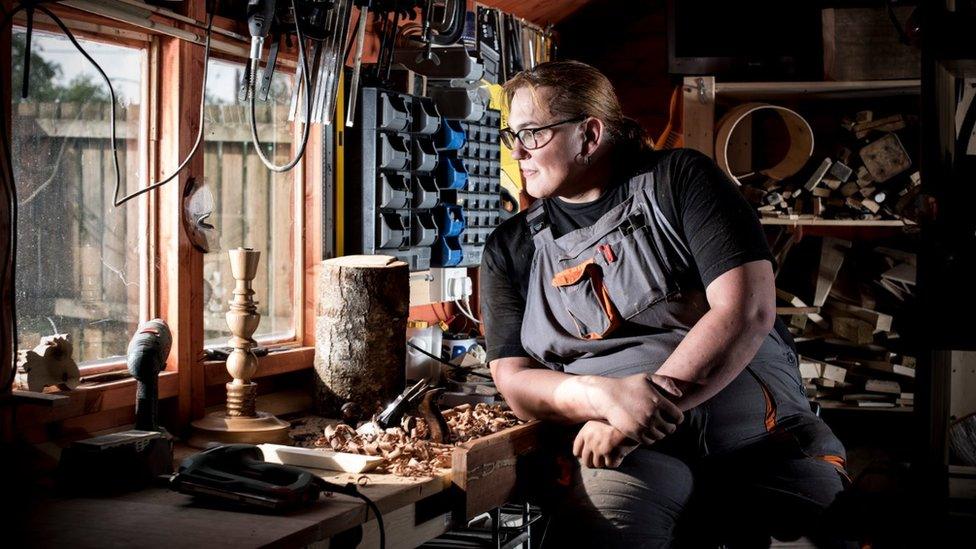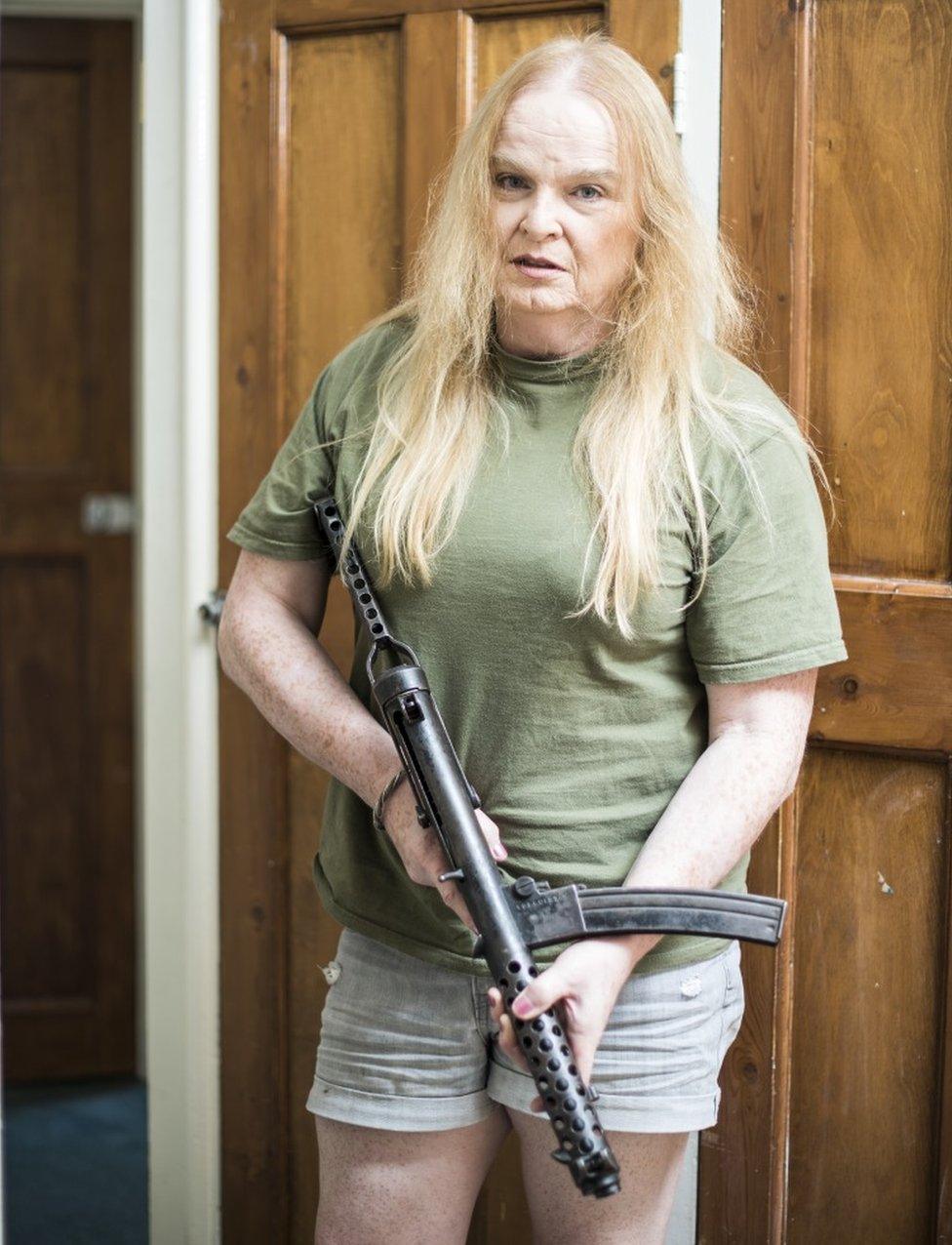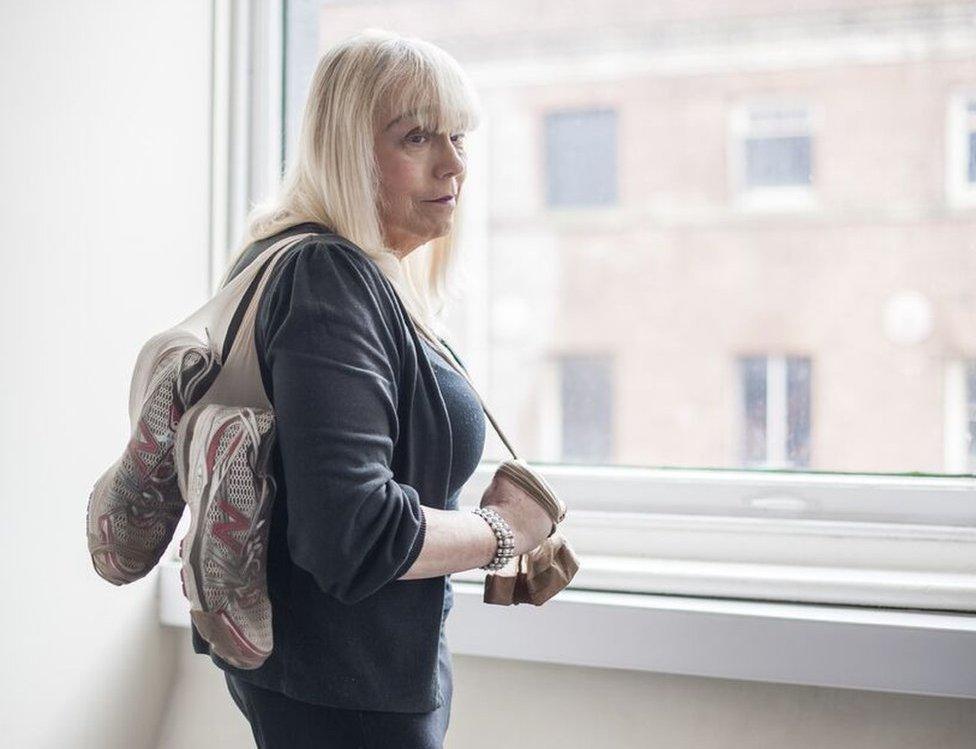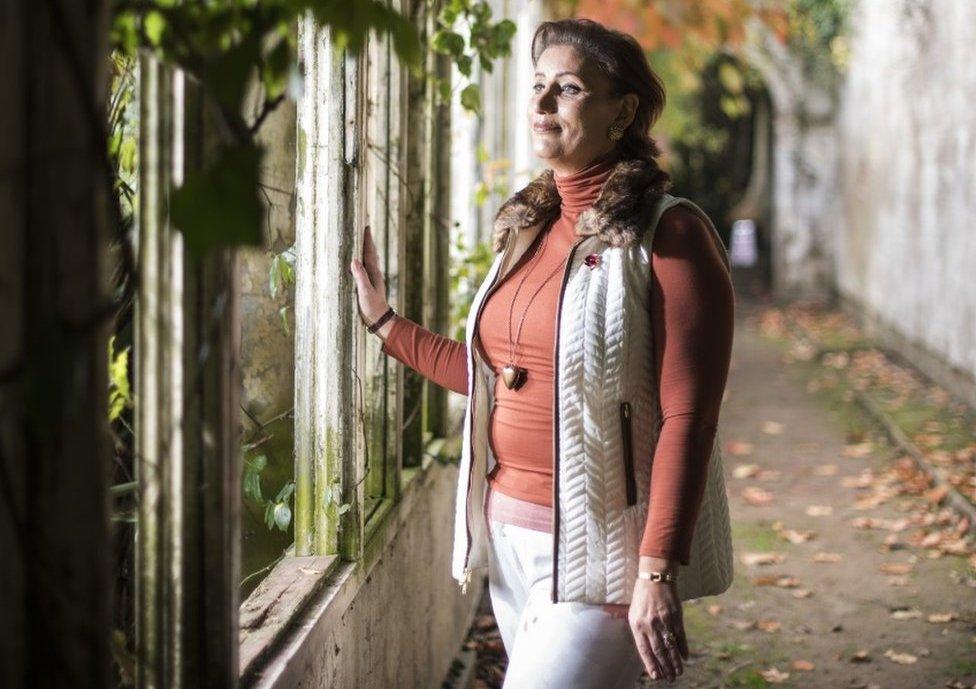Trans soldiers speak of military as 'form of therapy'
- Published

Penny joined the Army as a medical clerk and is among the people featured in the exhibition
The experiences of former soldiers who have struggled with their gender identity is being explored at an exhibition in Liverpool. Many transgender people joined the military as a "form of therapy", according to an academic who has interviewed a number of trans veterans.
The group, who described their experiences to historian Dr Emma Vickers, said they had to lie about women's clothing during their military life as men.
The Museum of Liverpool's Dry Your Eyes Princess exhibition is named after a derogatory phrase meaning "toughen up", which participants say they "often heard" during their Army careers.
Dr Vickers, from John Moores University, interviewed 20 people for the exhibition.
She said: "Trans personnel in the UK were dismissed in significant numbers before 1999 and, because of the limited understanding of trans identities, officials tended to confuse gender identity with sexual identity."
Dr Vickers found that many joined up in the hope the "hyper-masculinity" of the military would "rid them of discomfort they felt with their gender identity".

Michaela's story: 'My biggest regret'

Michaela's portrait represents her wish that she could have her time again and serve as herself
Michaela joined the Royal Electrical and Mechanical Engineers in 1975 to "find the missing piece" in her life, as she felt she did not fit in.
She said there was no awareness of transgender people, who were seen by authorities as "gay people wearing clothes of the opposite gender".
"The view was that these people did not exist," Michaela said.
While serving in Germany, she visited LGBT bars and dressed as a woman in private.
She left the Army in 1981 because she felt she could not be who she was, and started a new life.
"The biggest regret is that I did not do more in the forces and I was not able to officially be Michaela.
"That is a regret that will stay with me till the end of my life," she said.

Dawn's story: 'Being the guy everybody wanted me to be'

Dawn claimed the tights were to protect her kit from muddy training shoes
Many trans veterans interviewed said they joined the military to prove their masculinity, but Dawn said the more she tried to become masculine, the worse she felt. She says she was "never happy".
"I was playing a role. It was like the biggest camouflage I had ever put on in my life," said Dawn.
"I was forced to join the Army Cadets when I was 16 to prove my masculinity and be the guy everybody wanted me to be.
"I was beaten by my father after the doctor told him I wanted to be a girl.
"It was decided in his head that we never mention this ever again.
"He got me to say 'I am not a girl' and it was the biggest lie I ever came up with in my life."
Dawn, of Rochdale, Greater Manchester, served for more than 20 years, including a stint in Northern Ireland.
"My father thought the Army would make a man out of me," she said.
She said she explained the discovery of tights in her Army kit by saying she used them to store her muddy running shoes.
The sergeants thought it was "a genius idea" - and so adopted the same method.

Abi's story: Post-Afghanistan breakdown

Abi became Britain's first transgender army officer following her transition in 2007
Abi knew from a very early age that she was different and "did not fit the norm", after joining the military in the 1980s,
She lived in disguise for more than 40 years "desperately trying" to please society and her family.
"Everything about the person that I am now was very carefully locked away in a little box somewhere never to be opened. Nobody knew about me at all," she said.
Abi transitioned in 2007 after having a breakdown following her return from Afghanistan.
She left the Army after she felt she was unable to serve as a woman.

In 1999, a ban on trans personnel in the armed forces was lifted. Trans is a term that refers to a person whose gender identity and/or expression differs from the sex they were "assigned" at birth.
The Ministry of Defence said in a statement: "Everyone now serves regardless of gender identity and we are all about making people feel comfortable being themselves."
The exhibition continues at the Museum of Liverpool until 31 January.
- Published3 June 2015
